“For sin shall not have dominion over you: for ye are not under law, but under grace. What then? shall we sin, because we are not under law, but under grace? God forbid.” Romans 6:14-15
It is hard to believe that people who receive a wonderful gift would misuse that gift, but it happens all the time. This is especially true with the gift of grace from our Father which provides us with eternal life and gives us power over sin. No sooner than the doctrine of grace was revealed, it came under attack. It was and is hard for prideful man to believe that he can do nothing to earn his salvation. The concept that our salvation is totally based on the shed blood of Christ and that we cannot add anything to that sacrifice on our own behalf is unacceptable by many. That is why so many cults and “isms” require works as part of their salvation. But the scriptures are clear- it is a free gift.
 If I came up to you and said I had a gift for you and then gave you a price you would have to pay for it, it would no longer be a gift. The covenant that God has made with us is kept on the strength of who He is, not on what we can pay. We can never pay enough. The price is too high. As hard as that is to understand, we need to get a hold of that if we are going to experience grace.
If I came up to you and said I had a gift for you and then gave you a price you would have to pay for it, it would no longer be a gift. The covenant that God has made with us is kept on the strength of who He is, not on what we can pay. We can never pay enough. The price is too high. As hard as that is to understand, we need to get a hold of that if we are going to experience grace.
But even when people get beyond the difficult concept that salvation is free, they must face more struggles, because our sinful nature will take any wonderful gift of God and try to pervert it. Examples of what God has given us that we twist around are many, but just a few examples are intimacy, humor, nature, and science. None of those things are invented, they are all discoveries of what God has already built into our universe. Unfortunately, we often find a way to pervert them to fit our own sinful desires. We do the same thing when we discover the free and unbreakable gift of salvation. We try to pervert it.
The movie Casualties of War tells the true story of a squad of soldiers which fought in the Vietnam War. The lead role in the film is Private Erikson who’s is played by Michael J. Fox. The other men in the squadron begin to be involved in a string of atrocities, the latest against a Vietnamese girl. As Erickson struggles with what has happened, he says to the other men in his squad, “Just because each of us might at any second be blown away, we’re acting like we can do anything we want, as though it doesn’t matter what we do. I’m thinking it’s just the opposite. Because we might be dead in the next split second, maybe we gotta be extra careful what we do. Because maybe it matters more. Maybe it matters more than we ever know.”
Some people mistakenly see grace as a license to sin, just like the men in this story who saw the possibility of death as a reason to commit sinful acts. There is nothing that justifies sin, especially not grace. What is a gift for us cost God beyond comprehension. To take advantage of that gift lessens the incredible sacrifice of Christ on our behalf.
In today’s verse Paul had to correct the way many in Rome were approaching salvation. They were accepting God so that they could live like the devil! “After all,” they were saying, “if salvation is free and it can’t be lost, why worry about the way we act? In fact, the more we sin, the more it illustrates God’s grace! Right?” Wrong. Paul tells us in Romans that we cannot take evil advantage of God’s grace. Earlier in Romans 6:1-2 Paul says, “What shall we say, then? Shall we go on sinning so that grace may increase? By no means! How can we who died to sin still live in it?”
We are new creatures, why would we live like the old? In fact, in every epistle Paul illustrates the dangers of Christians living sinfully and his warnings are strong and to the point. We will lose comfort, joy, peace, and many other wonderful blessings that accompany knowing Christ. In fact, in Corinthians, he makes it clear that we can even lose our lives.
So grace is good, sin is bad, and just because we experience grace, we should not sin to celebrate. Sin does not celebrate or illustrate God’s grace. Sin diminishes what God has done in our lives and mocks the incredible sacrifice that Christ has made for us. He became sin for us so that we could live outside of sin, so by His power, that’s what we should do.
 actors I grew up with were popular with me for many reasons, but one of the main reasons was that they usually gave the bad guy what he deserved.
actors I grew up with were popular with me for many reasons, but one of the main reasons was that they usually gave the bad guy what he deserved. Let’s take the first two together.
Let’s take the first two together.


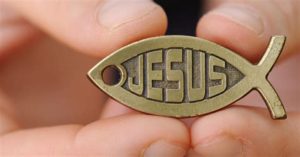



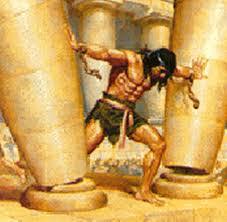
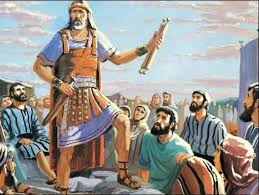

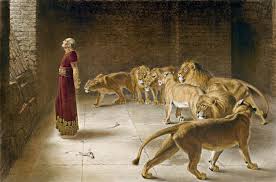

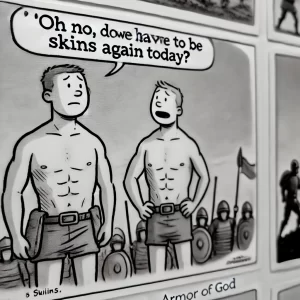 The enemy on this battle doesn’t attack with laser beams or supervillains- he attacks through temptation, doubt, and fear. So we must armor up for that.
The enemy on this battle doesn’t attack with laser beams or supervillains- he attacks through temptation, doubt, and fear. So we must armor up for that.


 several books chronicling his incredible voyages to the South Pole. While on one of the voyages he had to leave a few men on Elephant Island because their ship was crushed and there was not enough room for the entire crew. He promised them that he would return. Later, when he tried to go back, huge icebergs blocked the way. But suddenly, as if by a miracle, the huge icebergs shifted and a channel opened in the ice and Shackleton was able to get through. His men, ready and waiting, quickly scrambled aboard. No sooner had the ship cleared the island than the ice crashed together behind them. Contemplating their narrow escape, Shackleton said to his men, “It was fortunate you were all packed and ready to go!”
several books chronicling his incredible voyages to the South Pole. While on one of the voyages he had to leave a few men on Elephant Island because their ship was crushed and there was not enough room for the entire crew. He promised them that he would return. Later, when he tried to go back, huge icebergs blocked the way. But suddenly, as if by a miracle, the huge icebergs shifted and a channel opened in the ice and Shackleton was able to get through. His men, ready and waiting, quickly scrambled aboard. No sooner had the ship cleared the island than the ice crashed together behind them. Contemplating their narrow escape, Shackleton said to his men, “It was fortunate you were all packed and ready to go!”